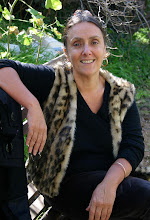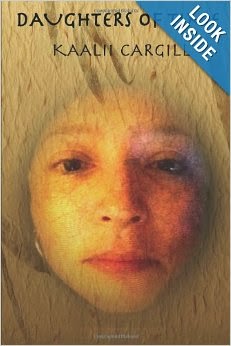Reblogged from Magoism, the Way of S/HE
![Pageflex Persona [document: PRS0000040_00008]](https://lh3.googleusercontent.com/blogger_img_proxy/AEn0k_twa0zf-TlJwfbzYfBEhTKODfhgyIESeydHMj8aGbT3zTv1LRMTwazUSio48Ht52NuglJyrdUM424LCwTcMkL6I2OSqiaGN2Er2MMrbuAtJssyUeN6eMvseKMW6qfeUxNUnGRlccpHyldLKOVDS2UhWWsop8pJ7dg=s0-d)
[i] M Stone, 1978, When God Was a Woman, New York, Harcourt Brace Jovanovich.
[ii] G Davis, 1974, Interception of Pregnancy: Post-conceptive Fertility Control, Sydney, Australia, Angus & Robertson, p. 220. BG Walker, 1983, The Women’s Encyclopaedia of Myths and Secrets, New York, Harper & Row, p. 104.
[iii] HK Cargill, 1999, A Phenomenological Investigation of a Psychobiological Method of Birth Control, Doctoral thesis held at Monash University, Clayton, Victoria, Australia. Interviews with Australian women practising mindbody birth control.
M Jackson & T Teague, 1978, Mental Birth Control, Oakland, CA., Lawton-Teague Publications.
J Parvati, 1978, Hygieia: A Woman’s Herbal, Monroe, UT, Freestone Innerprizes.
A Rosenblum, 1976, The Natural Birth Control Book, Philadelphia, PA, Aquarian Research Foundation.
M Sjoo & B Mor, 1987, The Great Cosmic Mother: Rediscoverinq the Religion of the Earth, San Francisco, Harper & Row.
(Essay) Don’t Take It Lying Down: Reproductive Autonomy and the Goddess by Dr Kaalii Cargill
Once upon a time, when “God was a woman”[i], anywhere from
35000 years ago until about 3500 years ago in some parts of the world,
the life-giving power of the Goddess was deeply respected. Consistent
with this, women were respected as the life-givers, and the functions of
pregnancy, birth, and nurturing were valued as reflections of the Great
Mother, the mother of all. The rhythms and cycles of Nature were
honoured in ceremonies and rituals, in daily practices that reflected a
reverence for the feminine principle.
The
world in which we now live has little of this reverence, and we have
forgotten many ancient ways of knowing. We have forgotten that women in
some parts of the world did once know how to manage fertility in a
simple, uncomplicated internal way, with little need to use any outside
devices or programs. If these were needed, there is considerable
evidence that simple, safe birth control was also available in the form
of vaginal sponges, herbs and abortifacient drugs.[ii]
This is a very different story from modern biological science, which
tells us that women were at the mercy of Nature during their
childbearing years until the advent of the contraceptive Pill.
This other story tells of women’s mysteries destroyed by church and
state authorities and various individuals, all of whom were jealous
and/or fearful of women’s life-giving power. In this story (herstory
rather than history), there are social, religious and cultural factors
that have deeply affected the way we think about ourselves, our bodies,
and the relationship between psyche and matter. These factors have
profoundly impacted on fertility management, resulting in the loss of
true reproductive autonomy.
There are women who practice mindbody
birth control[iii], a way of managing conception through a process of
internal regulation, without using drugs, synthetic hormones, or
physical devices, and without abstaining at any time during the
fertility cycle. This method involves an internal mindbody process that
is in the tradition of ancient women’s mysteries; it is a reclaiming of
deep inner wisdom and power and offers true reproductive autonomy. It is
a practical experience of what can happen when the ancient mysteries of
the Goddess are rediscovered by modern women.
The mindbody approach to birth control returns choice and control in a
simple, accessible form and is a safe, inexpensive, empowering
alternative for women across the world. The only problem is that it is
an idea so foreign to us these days that most modern women cannot even
imagine doing it.
Why is something like mindbody birth control so foreign to us? Why is
it so frightening? Did women once know about this? What happened to
change things? What has been forgotten and lost?
When we begin to ask these questions, we begin to see through the
assumptions and cultural mythologies that have determined our life
choices. Taking a close look at these influences is beginning of being
able to choose rather than be controlled by factors that are usually
invisible and taken for granted. Despite centuries of conditioning, many
of us can sense that things are not what they seem, that the so-called
experts don’t always know best. One of the things that supports this
sort of intuitive knowing is the relationship women have with our bodies
via sexuality, menstruation, pregnancy, childbirth, and hands on
parenting.
The practice of mindbody birth control is something that some women
around the world have spontaneously developed, sometimes teaching it to
others, and sometimes just doing it. My own experience has been that
women are interested in the possibility, but they are very uncertain
about trying it for themselves. True reproductive autonomy does not fit
our current social, religious, and political beliefs. Even women who
consciously challenge these beliefs in some areas of their lives find
the idea of taking charge of birth control in this way very daunting.
What if it doesn’t work?
We become bluffed by the shame and fear associated with unwanted
pregnancy rather than claiming our right to true power, choice and
control. In order to engage mindbody birth control, we have to come to
terms with our cultural and personal beliefs about women and power, and
we must confront our conditioned lack of confidence in our relationship
with deep feminine wisdom. How each of us approaches this relationship
will impact on the Earth, the original matter . . . mater . . . mother
of us all.
[This is an edited excerpt from DON’T TAKE IT LYING DOWN: LIFE
ACCORDING TO THE GODDESS (2013) in which I explore these issues through
history, mythology, anthropology, psychology, and biology, and through
the “soul stories” of the women who have shared their experiences with
me. http://kaalii.wix.com/soulstory]
[i] M Stone, 1978, When God Was a Woman, New York, Harcourt Brace Jovanovich.
[ii] G Davis, 1974, Interception of Pregnancy: Post-conceptive Fertility Control, Sydney, Australia, Angus & Robertson, p. 220. BG Walker, 1983, The Women’s Encyclopaedia of Myths and Secrets, New York, Harper & Row, p. 104.
[iii] HK Cargill, 1999, A Phenomenological Investigation of a Psychobiological Method of Birth Control, Doctoral thesis held at Monash University, Clayton, Victoria, Australia. Interviews with Australian women practising mindbody birth control.
M Jackson & T Teague, 1978, Mental Birth Control, Oakland, CA., Lawton-Teague Publications.
J Parvati, 1978, Hygieia: A Woman’s Herbal, Monroe, UT, Freestone Innerprizes.
A Rosenblum, 1976, The Natural Birth Control Book, Philadelphia, PA, Aquarian Research Foundation.
M Sjoo & B Mor, 1987, The Great Cosmic Mother: Rediscoverinq the Religion of the Earth, San Francisco, Harper & Row.





